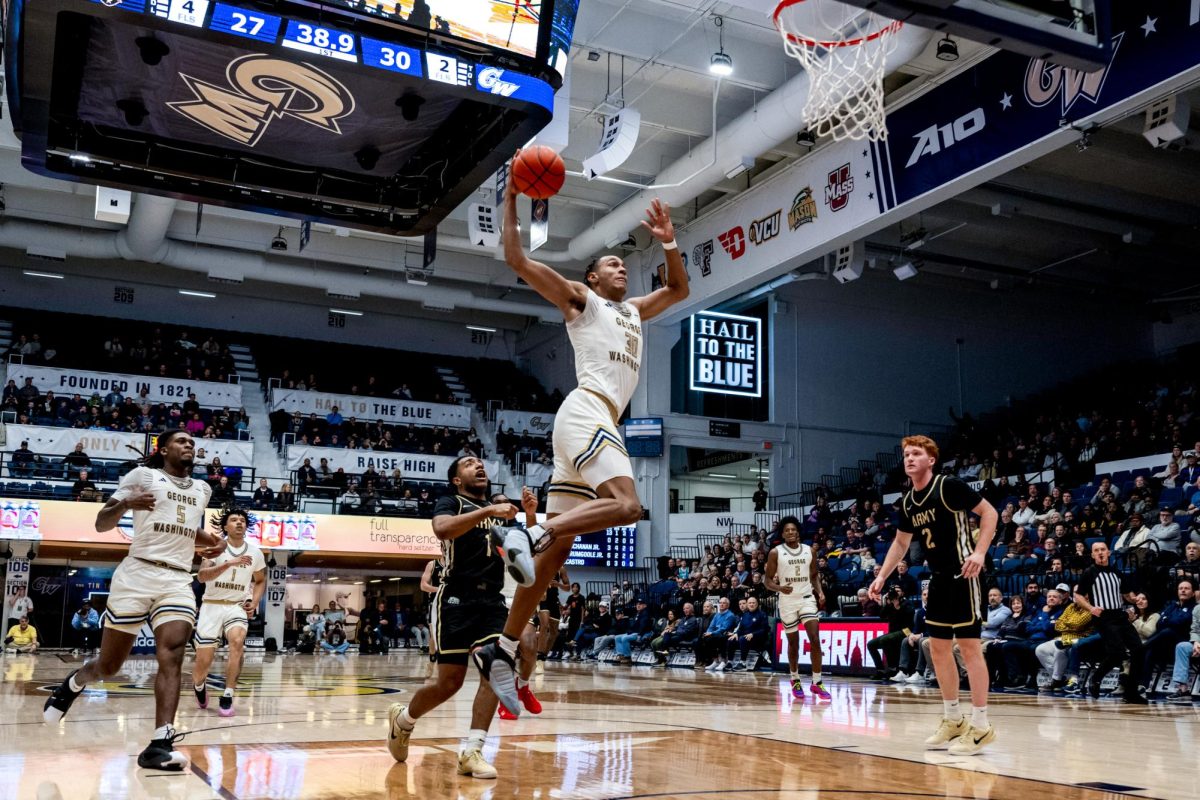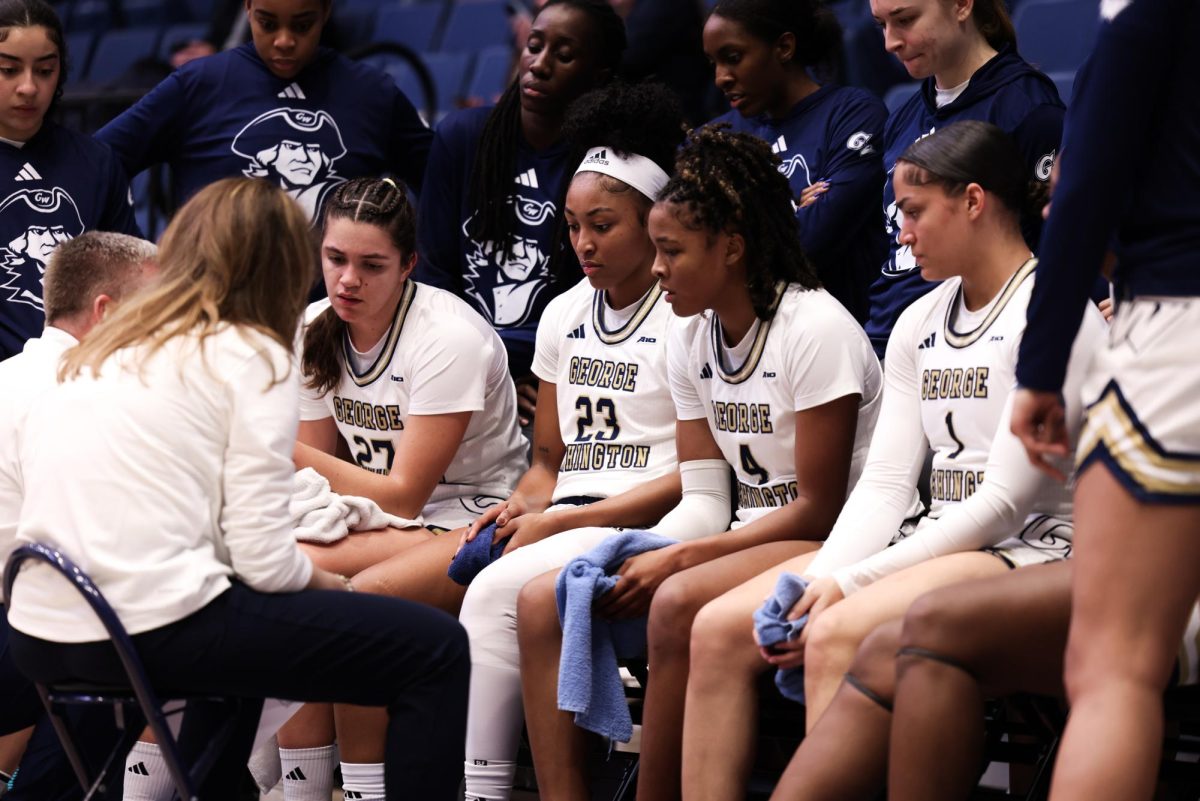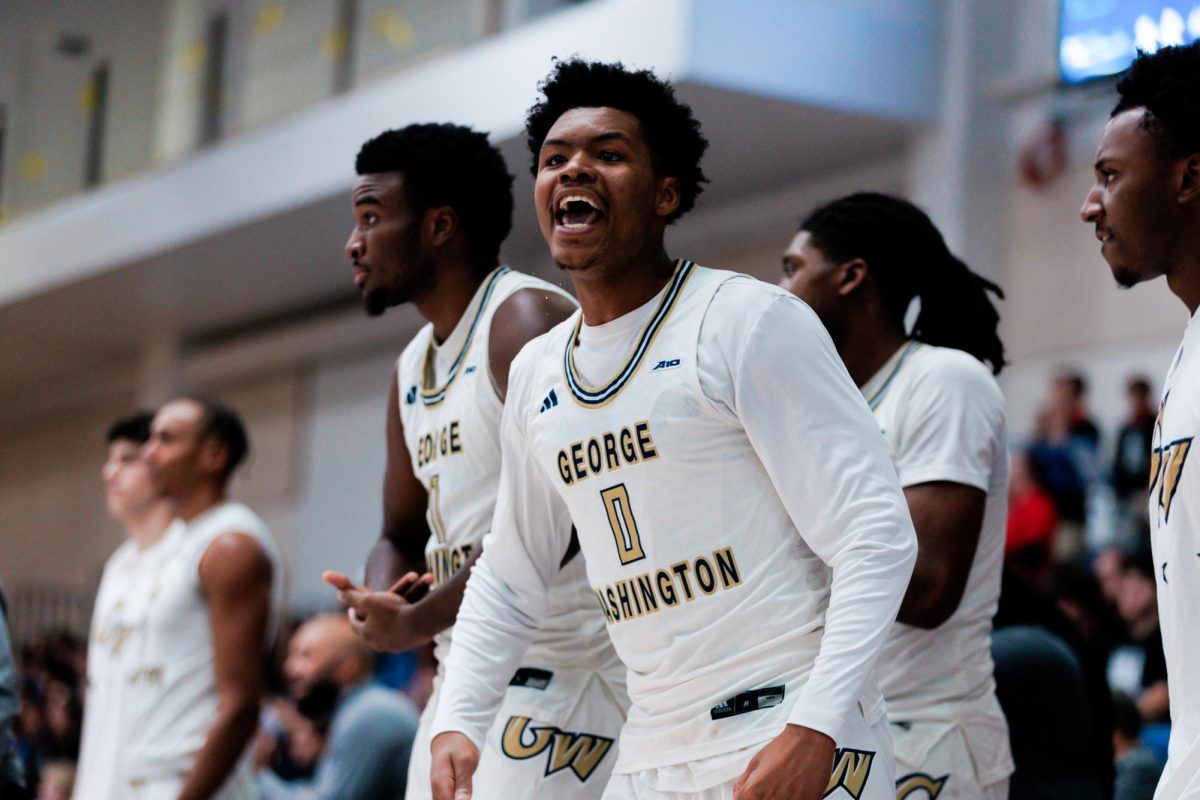
A weakness the team had struggled with all season finally seemed to be remedied: 10 against the Bonnies, 11 in a loss to Davidson, a season-high 14 in the Colonials’ regular-season finale and 10 against the Dukes.
But the same GW offense that was rolling just days prior was held to a 31.1 percent clip from the field, the team’s worst all season, and was an anemic 1-16 from three-point range.
“A poor-shooting team has really become a pretty good three-point-shooting team, and tonight we didn’t have it,” head coach Mike Lonergan said. “Some layups were short… We had a wide-open look from the top of the key from a really good player, would have cut it to five. We just didn’t make plays.”
Freshman forward Yuta Watanabe, who secured a spot in the starting lineup late in the season, had a career-high seven three-pointers against the Minutemen and two in his 12-point night against Duquesne.
But early foul trouble Friday night kept the sharpshooter at bay, as the Rams held Watanabe to just one field goal and 0-2 from beyond the arc. Lonergan cited a lack of both physical and mental toughness as reasons why URI was able to get so many attempts from the charity stripe.
“[The Rams] have some strength, and Yuta gave up two three-point plays early. They went right at him, and he’s not strong enough yet. But we’ve got to give harder fouls,” Lonergan said. “Give them credit, they were tougher than us. Mental toughness, too, hurt us. We had veteran players that kept getting silly fouls.”
Junior guard Joe McDonald, another big Colonials threat from long distance, also found himself on the bench more often than his team would have liked after committing early fouls.
The hard-nosed point guard played a team-high 33 minutes and led GW with four threes in the win over Duquesne, but four personal fouls against URI limited him to just 26 minutes on the court, where he went 0-4 from three-point range and scored only three total field goals.
“I think [foul trouble] hurt us a lot in the first half, when Joe had two, and Yuta and Kethan [Savage],” junior guard Patricio Garino said. “I think it kills our momentum.”
Despite the fouls, the Colonials escaped the first half with a two-point lead. But with momentum on the downswing, GW field goals became a rare occurrence in the second half.
In addition to sending URI to the line 31 times in the second frame, the Colonials shot just 21.2 percent from the field in the final half. And while the poor shooting effort inhibited any GW offensive momentum, Lonergan also thought it helped the Rams – who, despite the best scoring defense in the A-10, often struggle to score – get going to the hoop.
“I thought we missed some easy shots, and they did a great job taking away our inside game,” he said. “And a lot of our missed shots led to run outs and easy baskets by [Rhode Island].”
The Rams would outscore GW 14-8 in fast-break points and bested the inconsistent GW bench 17-11 during a game in which the Colonials were desperate for some help off the pine.
It was emblematic of a frustrating season for the Colonials, who midway through the campaign looked like shoo-ins for the NCAA Tournament. The highs were high, but the lows just as low. And the only consistent thing was that no one knew what team would show up on any given game day.
The group on the Barclays Center hardwood Friday night didn’t have it, so Lonergan will await the team’s NIT fate to see whether John Kopriva can continue his career as a Colonial. But since Kopriva is the sole senior on the team, Lonergan knows what he’ll be working with next season and is already thinking about ways to fit the pieces together a little more snugly.
“Hopefully our juniors bounce back and really be committed this off‐season as a group,” Lonergan said. “We had some guys that had bad years, and I had a bad year. So we have to do a better job coaching and our juniors have to be really motivated.”






